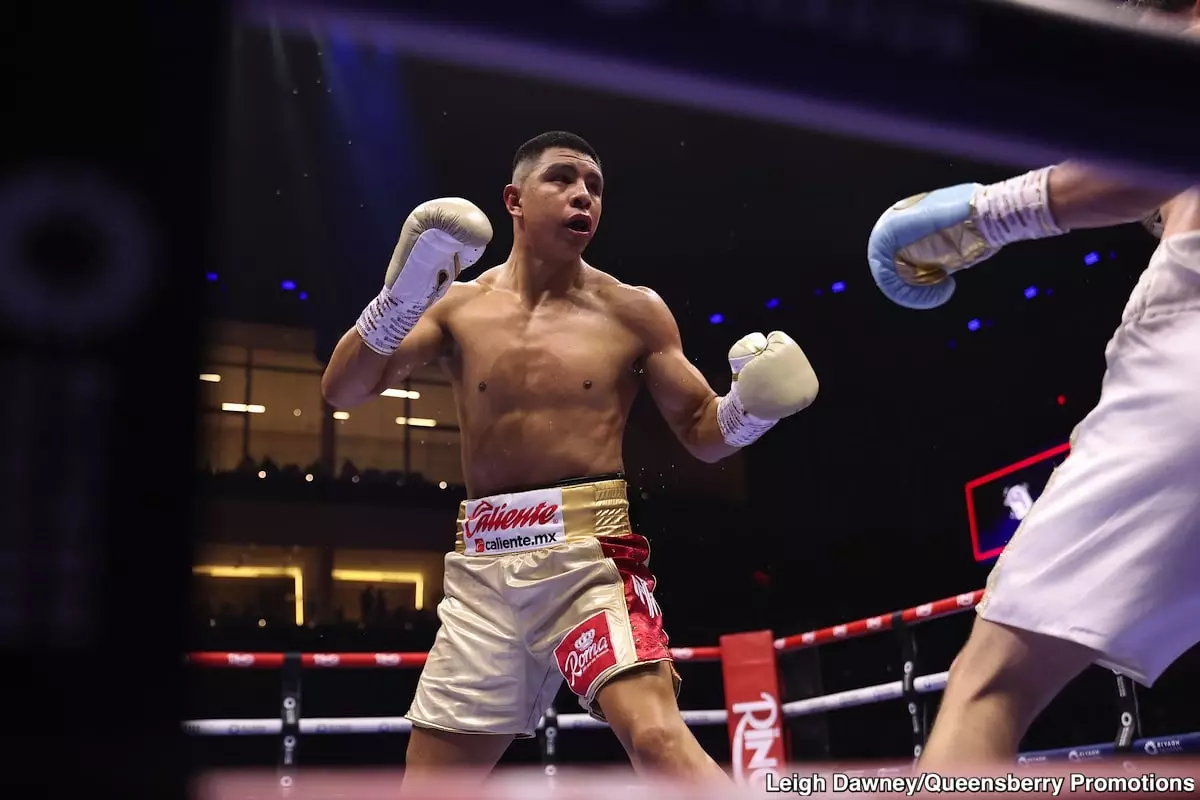In the realm of professional boxing, few narratives provoke as much intrigue and scrutiny as that of performance-enhancing drugs (PEDs). Oscar De La Hoya recently drew attention to a troubling pattern within the camp of renowned trainer Eddy Reynoso. The current scandal involving Jaime Munguia marks the sixth fighter under Reynoso’s guidance to test positive for PEDs, stoking flames of doubt and suspicion that can no longer be ignored. De La Hoya’s frank acknowledgment of the situation—highlighting the improbability of a clean slate within a single camp—reveals deeper implications about the ethics in contemporary boxing.
Unquestionably, the revelation that six of Reynoso’s fighters, including high-profile names such as Canelo Alvarez and Oscar Valdez, tested positive is cause for alarm. This frequency raises questions not only about individual accountability but also about the environment fostered in Reynoso’s gym. It seems increasingly implausible that the trainer is oblivious to the illicit activities occurring so close to his operations. With each new allegation, the assumption of ignorance grows weaker, and De La Hoya’s incredulity becomes more understandable. It’s a stark reminder that in the high-stakes world of boxing, triumph often walks hand-in-hand with scandal.
The Broader Impact on the Boxing Community
These revelations cast a long shadow over the sport, fostering distrust among fans and aspiring boxers alike. For young athletes who dream of making their mark in the ring, seeing multiple fighters from one camp succumb to temptation can be disheartening. The message seems clear: success may come at a steep moral cost. Instead of celebrated icons, these athletes risk being painted with a broad brush of suspicion—a label that can tarnish careers irreparably.
Moreover, the broader implications for the sport cannot be overstated. As PED scandals plague the industry, promoters like De La Hoya find themselves at a crossroads: how to balance the promotion of fighters while ensuring the integrity of boxing remains intact. The public’s faith is fragile, and if trainers like Reynoso are perceived to be complicit in facilitating the use of performance enhancers, it could lead to a significant fracture in the fanbase and, consequently, revenue.
Changing the Narrative: The Role of Responsibility
Interestingly, Ryan Garcia’s name has emerged in this conversation as De La Hoya expressed reluctance about renewing his association with Reynoso. This hesitation underscores a larger discussion about personal responsibility in the sport. Should a trainer be held accountable for the actions of their athletes, especially when a track record of misconduct emerges from their gym? Each fighter has autonomy over their choices, but when a pattern develops, it becomes essential to reevaluate the guiding leaders in their careers.
In the end, the boxing community must ask itself critical questions: How can accountability be enforced? What measures can be put into place to restore faith in the sport? As long as cases like Munguia’s continue to appear, the dialogue surrounding PEDs must evolve. Fighters and trainers alike carry a burden of responsibility—not only for their own reputations but for the image of boxing as a whole. The future may depend on transparency, stringent monitoring, and a collective commitment to integrity that could redeem the sport from the grip of scandal.

